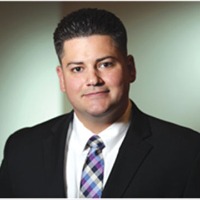Windsor RICO Act Lawyer, New Jersey
Sponsored Law Firm
-
 x
x

Click For More Info:
-
Del Vacchio O' Hara
39 Route 12 Suite E Flemington, NJ 08822» view mapCriminal Defense Law Attorneys That are on Your Side
For innovative solutions to complex problems, choose the law firm of Del Vacchio O'Hara.
800-971-0360
Not enough matches for Windsor RICO Act lawyer.
Below are all Windsor Criminal lawyers.
Jason Scotto D'Aniello
✓ VERIFIEDCriminal, DUI-DWI, Motor Vehicle
Jason Scotto D’Aniello received his Bachelors of Science degree, with honors, in International Relations and Diplomacy from Seton Hall University in... (more)
Robert G. Swan
✓ VERIFIEDCriminal, Divorce & Family Law, Real Estate, Traffic
Robert G. Swan is a former Assistant Prosecutor in Mercer County who now has a general law office that places emphasis on Criminal, Family, Divorce, B... (more)
FREE CONSULTATION
CONTACTEmily Gosnell
Criminal, Divorce & Family Law, Municipal, Workers' Compensation
Status: In Good Standing
FREE CONSULTATION
CONTACTJune Yong Lee
Intellectual Property, Immigration, Environmental Law, Criminal
Status: In Good Standing
 Patrick O'Hara Flemington, NJ
Patrick O'Hara Flemington, NJ AboutDel Vacchio O' Hara
AboutDel Vacchio O' Hara Practice AreasExpertise
Practice AreasExpertise


